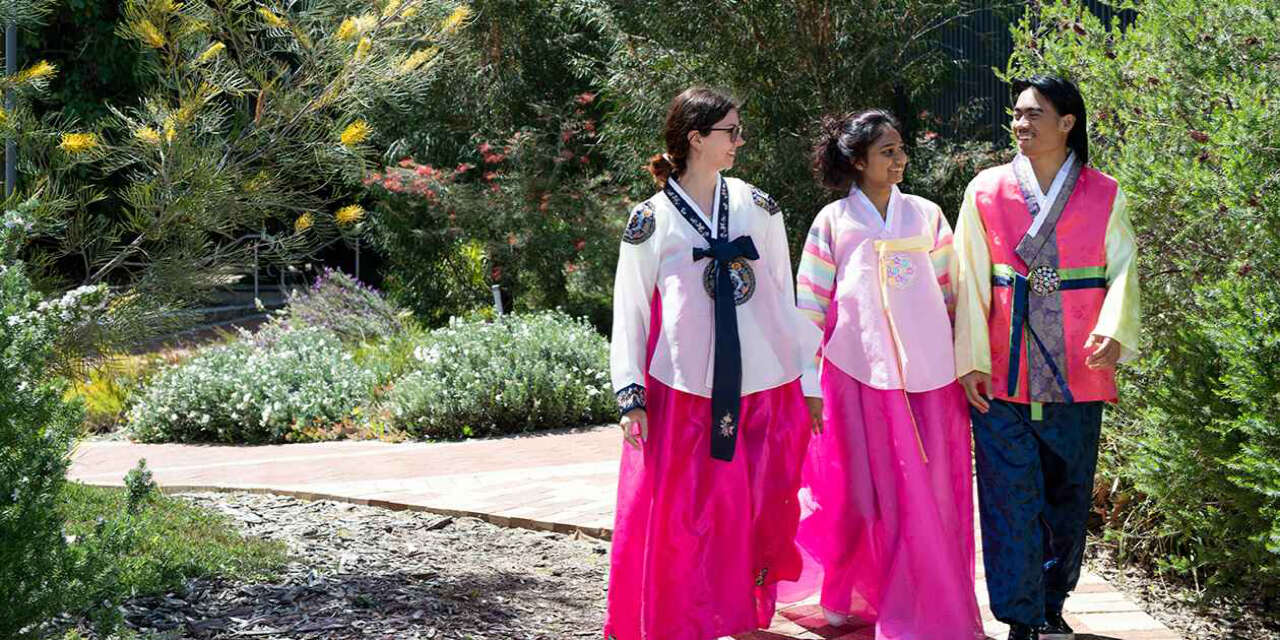Overview
Overview
Worldwide, Korean is the fastest-growing language among non-native speakers, and with the global popularity of K-pop and K-dramas, the interest in Korean culture is no surprise.
In Australia, over the past decade there’s been increasing awareness of Korean studies as a language/culture-based studies area, and Korea–Australia relations are growing in economic, political and intercultural importance. As a result, there is a growing demand for graduates in Korean studies.
In this course you’ll explore Korean society, culture, history, politics and international relations and gain strong competency in the Korean language. You’ll also delve into some of the most intriguing societal and cultural issues of the Korean peninsula, ranging from South Korea–North Korea relations to the success of Hallyu, which refers to the rising wave of popularity of South Korean culture.
The course will give you a transformative learning experience so that you can work and engage comfortably in diverse cultural environments – an attribute that is increasingly vital as cultures and industries become more globally entwined.
Importantly, the language learning incorporates in-class activities that have a strong focus on active learning and developing communication skills in real-world contexts.
You do not need prior knowledge of the Korean language, or any other Asian language, to study this major.
Korean Studies is offered as part of the Bachelor of Arts. You may choose to broaden your knowledge and skills with a second major, or select elective units or a specialisation that supports your career goals.
Korean Studies specialisation
If you are studying another major in any of Curtin’s study areas, adding a specialisation (comprising four units) in Korean Studies will give you a solid foundation in understanding Korean society, language and culture to succeed in a workplace that requires strong intercultural skills. If you're considering studying science, engineering, health sciences or education, adding intercultural and linguistic competencies through a specialisation in Korean Studies will give you an advantage in global job markets.
What jobs can the Korean Studies course lead to?
Careers
- Communications, marketing and media consultant/officer
- Diplomat
- Foreign policy advisor
- Language specialist
- Education professional
- Policy consultant or researcher
- Travel and tourism business development manager
- Exports advisor
Industries
- Global business
- Cultural enterprise
- Cultural development
- Energy
- International relations
- International trade
- Non-government organisations (NGOs)
- Journalism
- Public service
What you'll learn
- demonstrate good written and spoken Korean language ability, and apply them competently in social and professional contexts, GC1, GC3, GC5
- evaluate a range of issues in Korean society and culture with clarity and purpose; and, through using appropriate research evidence and language, support judgement and inform culturally-sensitive decision making in the context of future employment or postgraduate study, GC3, GC4, GC5, GC6
- demonstrate cultural confidence to engage across diverse global contexts with an advanced level of Korean linguistic and cultural competence, GC2, GC4, GC5, GC6
- develop social sciences research projects related to the two Koreas in future employment contexts and manage and take responsibility for their own learning processes with minimum guidance, GC3, GC5, GC6
